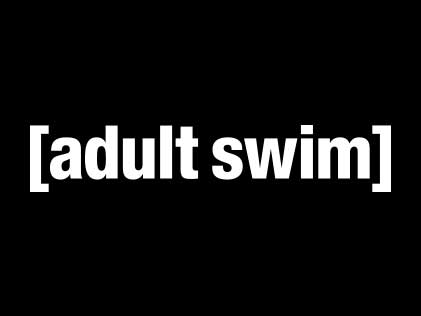HLS.js is a JavaScript library that implements an HTTP Live Streaming client. It relies on HTML5 video and MediaSource Extensions for playback.
It works by transmuxing MPEG-2 Transport Stream and AAC/MP3 streams into ISO BMFF (MP4) fragments. Transmuxing is performed asynchronously using a Web Worker when available in the browser. HLS.js also supports HLS + fmp4, as announced during WWDC2016.
HLS.js works directly on top of a standard HTML<video> element.
HLS.js is written in ECMAScript6 (*.js) and TypeScript (*.ts) (strongly typed superset of ES6), and transpiled in ECMAScript5 using Babel and the TypeScript compiler.
Webpack is used to build the distro bundle and serve the local development environment.
Features
- VOD & Live playlists
- DVR support on Live playlists
- Fragmented MP4 container
- MPEG-2 TS container
- ITU-T Rec. H.264 and ISO/IEC 14496-10 Elementary Stream
- ISO/IEC 13818-7 ADTS AAC Elementary Stream
- ISO/IEC 11172-3 / ISO/IEC 13818-3 (MPEG-1/2 Audio Layer III) Elementary Stream
- Packetized metadata (ID3v2.3.0) Elementary Stream
- AAC container (audio only streams)
- MPEG Audio container (MPEG-1/2 Audio Layer III audio only streams)
- Timed Metadata for HTTP Live Streaming (in ID3 format, carried in MPEG-2 TS)
- AES-128 decryption
- SAMPLE-AES decryption (only supported if using MPEG-2 TS container)
- Encrypted media extensions (EME) support for DRM (digital rights management)
- Widevine CDM (only tested with shaka-packager test-stream on the demo page)
- CEA-608/708 captions
- WebVTT subtitles
- Alternate Audio Track Rendition (Master Playlist with Alternative Audio) for VoD and Live playlists
- Adaptive streaming
- Manual & Auto Quality Switching
- 3 Quality Switching modes are available (controllable through API means)
- Instant switching (immediate quality switch at current video position)
- Smooth switching (quality switch for next loaded fragment)
- Bandwidth conservative switching (quality switch change for next loaded fragment, without flushing the buffer)
- In Auto-Quality mode, emergency switch down in case bandwidth is suddenly dropping to minimize buffering.
- 3 Quality Switching modes are available (controllable through API means)
- Manual & Auto Quality Switching
- Accurate Seeking on VoD & Live (not limited to fragment or keyframe boundary)
- Ability to seek in buffer and back buffer without redownloading segments
- Built-in Analytics
- All internal events can be monitored (Network Events, Video Events)
- Playback session metrics are also exposed
- Resilience to errors
- Retry mechanism embedded in the library
- Recovery actions can be triggered fix fatal media or network errors
- Redundant/Failover Playlists
Supported M3U8 tags
For details on the HLS format and these tags' meanings, see https://tools.ietf.org/html/draft-pantos-hls-rfc8216bis-08
Manifest tags
#EXT-X-STREAM-INF:<attribute-list><URI>#EXT-X-MEDIA:<attribute-list>#EXT-X-SESSION-DATA:<attribute-list>
The following properties are added to their respective variants' attribute list but are not implemented in their selection and playback.
VIDEO-RANGEandHDCP-LEVEL(See #2489)
Playlist tags
#EXTM3U#EXT-X-VERSION=<n>#EXTINF:<duration>,[<title>]#EXT-X-ENDLIST#EXT-X-MEDIA-SEQUENCE=<n>#EXT-X-TARGETDURATION=<n>#EXT-X-DISCONTINUITY#EXT-X-DISCONTINUITY-SEQUENCE=<n>#EXT-X-BYTERANGE=<n>[@<o>]#EXT-X-MAP:<attribute-list>#EXT-X-KEY:<attribute-list>(METHOD=SAMPLE-AESis only supports with MPEG-2 TS segments)#EXT-X-PROGRAM-DATE-TIME:<attribute-list>#EXT-X-START:TIME-OFFSET=<n>#EXT-X-SERVER-CONTROL:<attribute-list>#EXT-X-PART-INF:PART-TARGET=<n>#EXT-X-PART:<attribute-list>#EXT-X-PRELOAD-HINT:<attribute-list>#EXT-X-SKIP:<attribute-list>#EXT-X-RENDITION-REPORT:<attribute-list>
The following tags are added to their respective fragment's attribute list but are not implemented in streaming and playback.
#EXT-X-DATERANGE:<attribute-list>(Not added to metadata TextTracks. See #2218)#EXT-X-BITRATE(Not used in ABR controller)#EXT-X-GAP(Not implemented. See #2940)
Not Supported
For a complete list of issues, see "Top priorities" in the Release Planning and Backlog project tab. Codec support is dependent on the runtime environment (for example, not all browsers on the same OS support HEVC).
- CMAF CC support #2623
EmsgInband Timed Metadata for FMP4 (ID3 within Emsgv1) in "metadata" TextTracks #2360#EXT-X-DATERANGEin "metadata" TextTracks #2218#EXT-X-GAPfilling #2940#EXT-X-I-FRAME-STREAM-INFI-frame Media Playlist filesSAMPLE-AESwith fmp4, aac, mp3, vtt... segments (MPEG-2 TS only)- PlayReady and FairPlay DRM ( See #3779 and issues labeled DRM)
- Advanced variant selection based on runtime media capabilities (See issues labeled
media-capabilities) - MP3 elementary stream audio in IE and Edge (<=18) on Windows 10 (See #1641 and Microsoft answers forum)
Server-side-rendering (SSR) and require from a Node.js runtime
You can safely require this library in Node and absolutely nothing will happen. A dummy object is exported so that requiring the library does not throw an error. HLS.js is not instantiable in Node.js. See #1841 for more details.
Getting started with development
First, checkout the repository and install the required dependencies
git clone https://github.com/video-dev/hls.js.git
cd hls.js
# After cloning or pulling from the repository, make sure all dependencies are up-to-date
npm install ci
# Run dev-server for demo page (recompiles on file-watch, but doesn't write to actual dist fs artifacts)
npm run dev
# After making changes run the sanity-check task to verify all checks before committing changes
npm run sanity-checkThe dev server will host files on port 8000. Once started, the demo can be found running at http://localhost:8000/demo/.
Before submitting a PR, please see our contribution guidelines. Join the discussion on Slack via video-dev.org in #hlsjs for updates and questions about development.
Build tasks
Build all flavors (suitable for prod-mode/CI):
npm install ci
npm run buildOnly debug-mode artifacts:
npm run build:debugBuild and watch (customized dev setups where you'll want to host through another server than webpacks' - for example in a sub-module/project)
npm run build:watchOnly specific flavor (known configs are: debug, dist, light, light-dist, demo):
npm run build -- --env dist # replace "dist" by other configuration name, see above ^Note: The "demo" config is always built.
NOTE: hls.light.*.js dist files do not include EME, subtitles, or alternate-audio support. In addition,
the following types are not available in the light build:
AudioStreamControllerAudioTrackControllerCuesInterfaceEMEControllerSubtitleStreamControllerSubtitleTrackControllerTimelineController
Linter (ESlint)
Run linter:
npm run lintRun linter with auto-fix mode:
npm run lint:fixRun linter with errors only (no warnings)
npm run lint:quietFormatting Code
Run prettier to format code
npm run prettierType Check
Run type-check to verify TypeScript types
npm run type-checkAutomated tests (Mocha/Karma)
Run all tests at once:
npm testRun unit tests:
npm run test:unitRun unit tests in watch mode:
npm run test:unit:watchRun functional (integration) tests:
npm run test:funcDesign
An overview of this project's design, it's modules, events, and error handling can be found here.
API docs and usage guide
- API and usage docs, with code examples
- Auto-Generated API Docs (Latest Release)
- Auto-Generated API Docs (Development Branch)
Note you can access the docs for a particular version using "https://github.com/video-dev/hls.js/tree/deployments"
Demo
Latest Release
https://hls-js.netlify.com/demo
Master
https://hls-js-dev.netlify.com/demo
Specific Version
Find the commit on https://github.com/video-dev/hls.js/tree/deployments.
Compatibility
HLS.js is only compatible with browsers supporting MediaSource extensions (MSE) API with 'video/MP4' mime-type inputs.
HLS.js is supported on:
- Chrome 39+ for Android
- Chrome 39+ for Desktop
- Firefox 41+ for Android
- Firefox 42+ for Desktop
- IE11 for Windows 8.1+
- Edge for Windows 10+
- Safari 8+ for MacOS 10.10+
- Safari for ipadOS 13+
A Promise polyfill is required in browsers missing native promise support.
Please note: iOS Safari on iPhone does not support the MediaSource API. This includes all browsers on iOS as well as apps using UIWebView and WKWebView.
Safari browsers (iOS, iPadOS, and macOS) have built-in HLS support through the plain video "tag" source URL. See the example below (Using HLS.js) to run appropriate feature detection and choose between using HLS.js or natively built-in HLS support.
When a platform has neither MediaSource nor native HLS support, the browser cannot play HLS.
Keep in mind that if the intention is to support HLS on multiple platforms, beyond those compatible with HLS.js, the HLS streams need to strictly follow the specifications of RFC8216, especially if apps, smart TVs, and set-top boxes are to be supported.
Find a support matrix of the MediaSource API here: https://developer.mozilla.org/en-US/docs/Web/API/MediaSource
Using HLS.js
Installation
Prepackaged builds are included with each release. Or install the hls.js as a dependency of your project:
npm install --save hls.jsA canary channel is also available if you prefer to work off the development branch (master):
npm install hls.js@canaryEmbedding HLS.js
Directly include dist/hls.js or dist/hls.min.js in a script tag on the page. This setup prioritizes HLS.js MSE playback over native browser support for HLS playback in HTMLMediaElements:
Alternative setup
To check for native browser support first and then fallback to HLS.js, swap these conditionals. See this comment to understand some of the tradeoffs.
For more embed and API examples see docs/API.md.
CORS
All HLS resources must be delivered with CORS headers permitting GET requests.
Video Control
Video is controlled through HTML <video> element HTMLVideoElement methods, events and optional UI controls (<video controls>).
Player Integration
The following players integrate HLS.js for HLS playback:
- JW Player
- Akamai Adaptive Media Player (AMP)
- Clappr
- Flowplayer through flowplayer-hlsjs
- MediaElement.js
- Videojs through Videojs-hlsjs
- Videojs through videojs-hls.js. hls.js is integrated as a SourceHandler -- new feature in Video.js 5.
- Videojs through videojs-contrib-hls.js. Production ready plug-in with full fallback compatibility built-in.
- Fluid Player
- OpenPlayerJS, as part of the OpenPlayer project
- CDNBye, a p2p engine for hls.js powered by WebRTC Datachannel.
They use HLS.js in production!
 |
 |
||
 |
 |
 |
|
 |
 |
 |
|
 |
 |
 |
 |
 |
 |
||
 |
 |
 |
 |
 |
 |
||
 |
 |
 |
 |
| cdn77 |  |
||
 |
Chrome/Firefox integration
made by gramk, plays hls from address bar and m3u8 links
- Chrome native-hls
- Firefox native-hls
License
HLS.js is released under Apache 2.0 License






